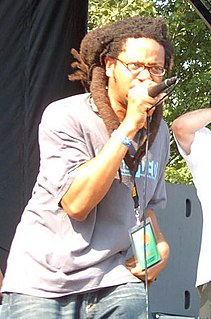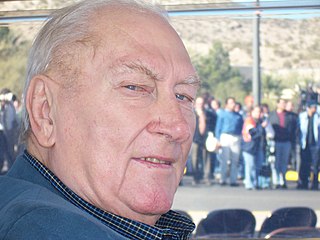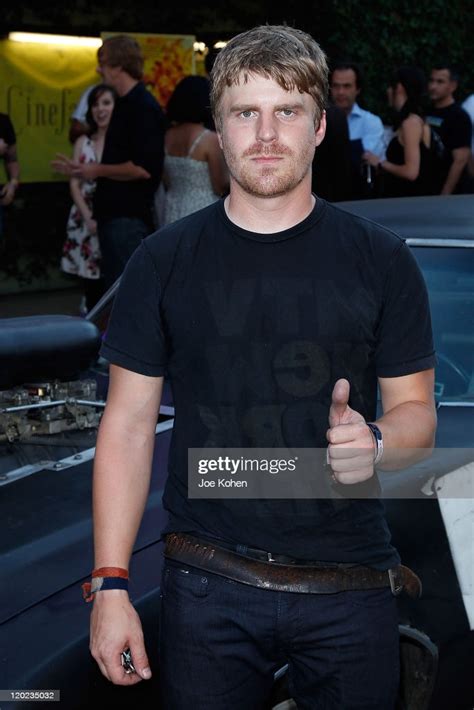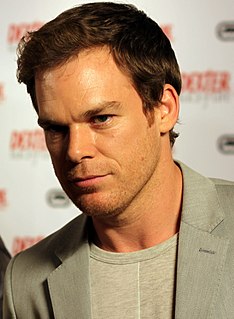A Quote by Chinua Achebe
What really worries me is that those who are in positions of power are not really affected by what we are writing. In the moral dialogue you want to start, you really want to involve the leaders. People ask me: "Why were you so bold as to publish A Man of the People? How did you think the Government was going to take it? You didn't know there was going to be a coup?" I said rather flippantly that nobody was going to read it anyway, so I wasn't likely to be fired from my official position. It's a distressing thought that we cannot engage our leaders in the kind of moral debate we need.
Quote Topics
Affected
Anyway
Ask
Ask Me
Bold
Cannot
Coup
Debate
Dialogue
Did
Distressing
Engage
Fired
Going
Government
How
Involve
Kind
Know
Leaders
Likely
Man
Me
Moral
Need
Nobody
Official
Our
People
Position
Positions
Power
Publish
Rather
Read
Really
Said
Start
Take
Think
Those
Thought
Want
We Cannot
Were
Why
Worries
Writing
Related Quotes
You know why I think we still execute people? Because, even if we don't want to say it out loud-for the really heinous crimes, we want to know that there's a really heinous punishment. Simple as that. We want to bring society closer together-huddle and circle our wagons-and that means getting rid of people we think are incapable of learning a moral lesson. I guess the question is: Who gets to identify those people? And what if, God forbid, they got it wrong?
People think that the government honors and respects us, and that they're actually going to come in and help people in need, but in reality it's really just a bunch of red tape, and through the power of language they can really make it seem like they're going to do a lot when they aren't going to do anything but filter money back into their own pockets.
I really did not think a thing about playing five black players to start the game; they were our best players and deserved to start. But if I knew all the misery it was going to cause me in the weeks following the game, I'd have thought long and hard about it. The players from Kentucky were gracious about it, but many of their fans and people from other parts of the country did not want to see it.
Many people like to think that their moral or political enemies are not just wicked or wrong - as if that were not enough - but stupid or idiotic too. We tend to find this attitude too in the contemporary religion debate. It might console those on each side of the debate to think of their opponents in these terms, but if we want to make real progress in understanding what is going on here, this approach cannot help.
When I watch the show [Westworld], it leaves me looking at the world around me in a new way. It really stays with you. And it's one of those things that you have to figure out. You're going to get little clues along the way, and every time you think you know what's up, we're going to flip it around. It's going to take you for a really awesome, crazy ride, but it's a really, really revolutionary character for women. There's a lot of really fun stuff to look forward to.
She said, “I’m going to have you fired.” I had two people say that to me today, “I’m going to have you fired.” Go ahead, be my guest. I’m wearing a green velvet costume; it doesn’t get any worse than this. Who do these people think they are? I’m going to have you fired!” and I wanted to lean over and say, “I’m going to have you killed.
I'd like the campaigning to be about all the things they're not going to do. Just tell me what you're not going do! Don't tell me what you're going to do. Just say "I'd really like to do solar energy but I'm not going to be able to. I really want to dig holes everywhere in the country but I really won't be able to do it because people seem to think that maybe my water will be screwed up."
Rather take that moral sense and apply it to the particulars of a job that is going to test those ethical and moral precepts differently than if you're a professor, or a business person, or a dad. And if I were not comfortable with the judicious use of our military to protect the American people, than I shouldn't have run for president. And having said that, I do think that the wisdom of a [Martin Luther] King or a [Mahatma] Gandhi can inform my decisions.
I think people feel very comfortable reviewing the idea of me, as opposed to what I've actually written. Most of the time, when people write about one of my books, they're really just writing about what they think I may or may not represent, as sort of this abstract entity. Is that unfair? Not really. If I put myself in this position where I'm going to kind of weave elements of memoir into almost everything, well, I suppose that's going to happen.
He's brilliant. At first, I thought, 'Oh, is he going to be Hollywood stud-like?' But he's a really kind, wonderful person. He said to me one day early in the making of the movie, 'You know, I was kind of worried about you'. He thought I was going to be a perfect skin, which I am certainly not. It didn't take long for Leo to crack and see who I really am, and we became very close. but, I must say, he is absolutely gorgeous.
There have been times in my adolescence where I gave up. I was like, 'I'm just never going to be pretty. I'm never going to be like one of those people on the front of magazines.' It always seemed really strange to me that the projection of how people are in advertisements looked nothing like the people who were actually buying them. You know what I mean? I never understood that mismatch, and now I really start to see that the people you see in the media are a lot more like people actually are.







































